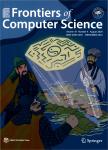Combined classifier for cross-project defect prediction: an extended empirical study
Combined classifier for cross-project defect prediction: an extended empirical study作者机构:College of Computer Science and Technology Zhejiang University Hangzhou 310027 China School of Information Systems Singapore Management University Singapore 641674 Singapore
出 版 物:《Frontiers of Computer Science》 (中国计算机科学前沿(英文版))
年 卷 期:2018年第12卷第2期
页 面:280-296页
核心收录:
学科分类:0810[工学-信息与通信工程] 0808[工学-电气工程] 08[工学] 081104[工学-模式识别与智能系统] 0811[工学-控制科学与工程] 0701[理学-数学] 0812[工学-计算机科学与技术(可授工学、理学学位)] 081202[工学-计算机软件与理论]
主 题:defect prediction cross-project classifier combination
摘 要:To facilitate developers in effective allocation of their testing and debugging efforts, many software defect prediction techniques have been proposed in the literature. These techniques can be used to predict classes that are more likely to be buggy based on the past history of classes, methods, or certain other code elements. These techniques are effective provided that a sufficient amount of data is available to train a prediction model. However, sufficient training data are rarely available for new software projects. To resolve this problem, cross-project defect prediction, which transfers a prediction model trained using data from one project to another, was proposed and is regarded as a new challenge in the area of defect prediction. Thus far, only a few cross-project defect prediction techniques have been proposed. To advance the state of the art, in this study, we investigated seven composite algorithms that integrate multiple machine learning classifiers to improve cross-project defect prediction. To evaluate the performance of the composite algorithms, we performed experiments on 10 open-source software systems from the PROMISE repository, which contain a total of 5,305 instances labeled as defective or clean. We compared the composite algorithms with the combined defect predictor where logistic regression is used as the meta classification algorithm (CODEPLogistic), which is the most recent cross-project defect prediction algorithm in terms of two standard evaluation metrics: cost effectiveness and F-measure. Our experimental results show that several algorithms outperform CODEPLogistic:Maximum voting shows the best performance in terms of F-measure and its average F-measure is superior to that of CODEPLogistic by 36.88%. Bootstrap aggregation (Bagging J48) shows the best performance in terms of cost effectiveness and its average cost effectiveness is superior to that of CODEPLogistic by 15.34%.



